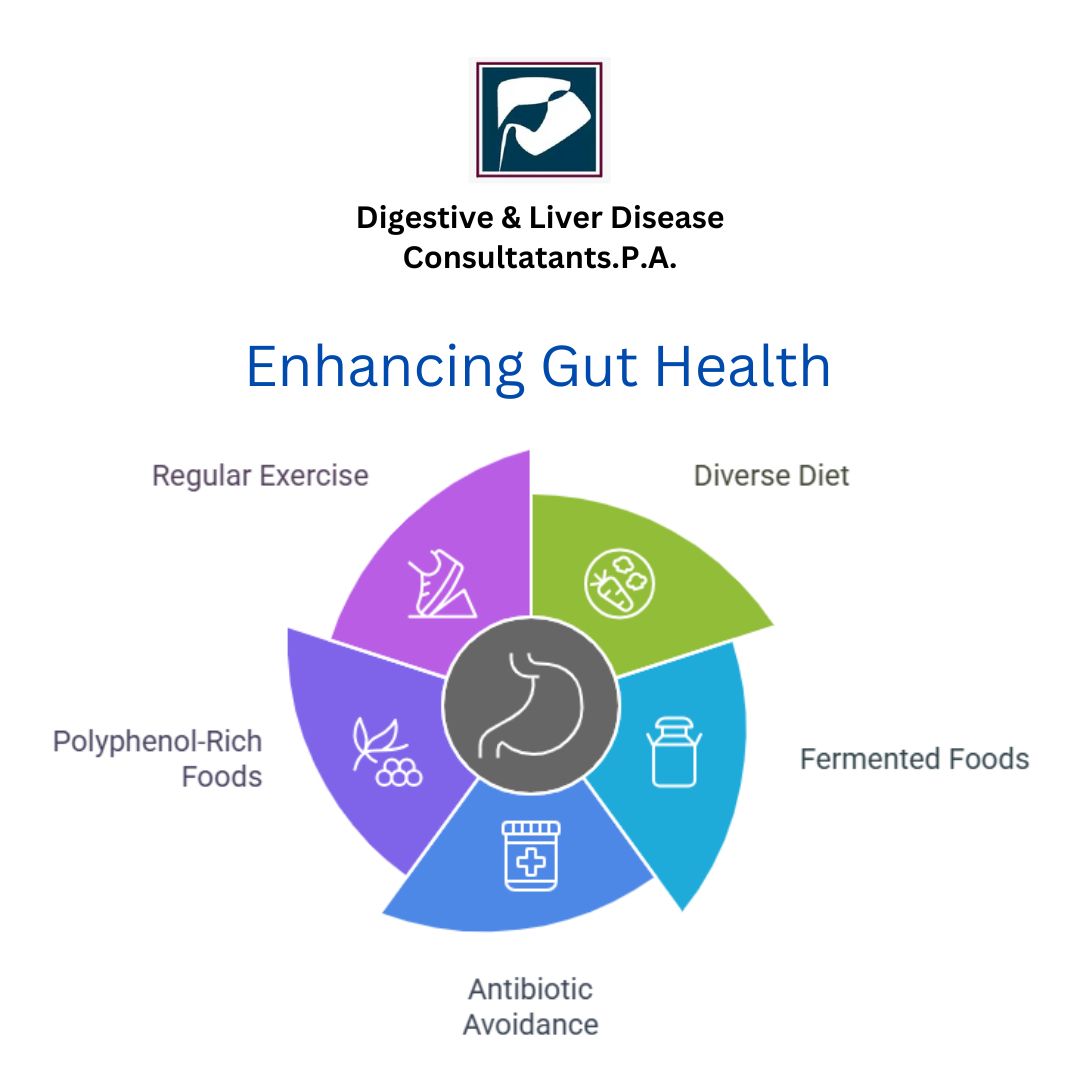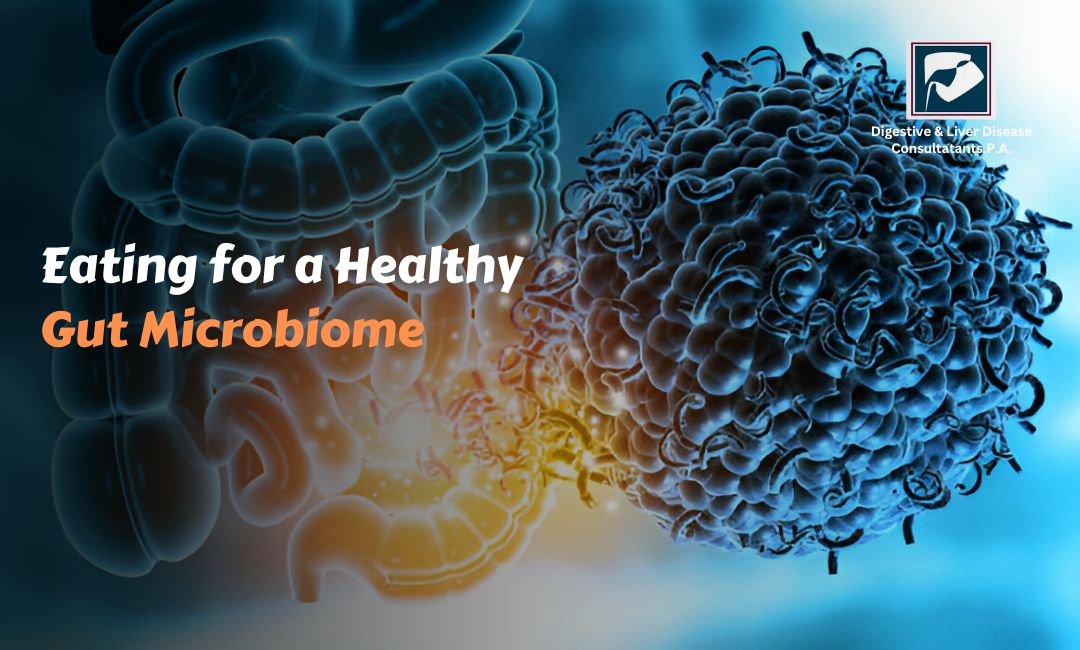When it comes to good health, your gut plays a much bigger role than you might think. Inside your digestive system lives a vast community of tiny organisms, called the gut microbiome, that influences everything from digestion to immune health, mood, and even weight. Feeding your gut the right foods can make a huge difference in how you feel every day.
In this blog, we'll explore what the gut microbiome is, why it matters, and how you can eat to keep it healthy and thriving.
What is the Gut Microbiome?
Your gut microbiome is made up of trillions of bacteria, viruses, fungi, and other microorganisms. While it might sound scary, most of these microbes are incredibly beneficial. They help break down food, produce vitamins, regulate your immune system, and protect against harmful bacteria.
A healthy gut microbiome is diverse — meaning it has many different types of good bacteria. This diversity helps maintain balance and keeps your body running smoothly. But when your gut microbiome becomes imbalanced — a condition known as dysbiosis — it can lead to digestive problems, weakened immunity, inflammation, and even chronic diseases.
Why Eating Matters for Your Gut
Everything you eat feeds your gut microbiome. Some foods promote the growth of good bacteria, while others encourage harmful microbes. Over time, your diet shapes your gut health, for better or worse.
By making smart food choices, you can nourish your beneficial bacteria, improve digestion, boost your immunity, and lower your risk of many diseases.

Best Foods for a Healthy Gut Microbiome
Here are some of the top foods that support a healthy gut:
1. Fibre-Rich Foods
Fiber is like fertilizer for your gut bacteria. Good bacteria feed on fiber through a process called fermentation, producing short-chain fatty acids that protect your gut lining and lower inflammation.
Great fiber-rich options include:
- Fruits (apples, berries, bananas)
- Vegetables (broccoli, spinach, carrots)
- Whole grains (oats, quinoa, brown rice)
- Legumes (beans, lentils, chickpeas)
2. Fermented Foods
Fermented foods naturally contain live probiotics — beneficial bacteria that can boost your microbiome diversity.
Try adding these to your diet:
- Yogurt with live cultures
- Kefir (a fermented milk drink)
- Sauerkraut
- Kimchi
- Miso
- Kombucha (fermented tea)
3. Prebiotic Foods
Prebiotics are types of fiber that specifically nourish beneficial gut bacteria.
Good sources include:
- Garlic
- Onions
- Leeks
- Asparagus
- Bananas
- Chicory root
4. Polyphenol-Rich Foods
Polyphenols are plant compounds with antioxidant properties that feed good gut bacteria.
Examples include:
- Green tea
- Berries
- Dark chocolate (at least 70% cocoa)
- Red wine (in moderation)
- Olive oil
5. Omega-3 Fatty Acids
Omega-3s have anti-inflammatory benefits and may help balance gut bacteria.
You can find omega-3s in:
- Fatty fish (salmon, sardines, mackerel)
- Flaxseeds
- Chia seeds
- Walnuts
Foods to Limit for Better Gut Health
Some foods can harm your gut microbiome if eaten too often:
Processed foods: High in sugar, unhealthy fats, and additives.
Artificial sweeteners: May negatively affect gut bacteria.
Excessive red meat: May promote harmful bacteria if consumed too frequently.
Alcohol: Can disrupt the balance of gut microbes.
Focusing on whole, natural foods instead of heavily processed ones is one of the best ways to support your gut.
Simple Tips to Support Your Gut Every Day
Eat a wide variety of plant foods: Aim for 30 different types of plants per week.
Include fermented foods regularly: A little bit every day is ideal.
Stay hydrated: Water helps fiber work better in your system.
Manage stress: Chronic stress can harm your gut bacteria.
Exercise regularly: Physical activity promotes a diverse microbiome.
Get enough sleep: Poor sleep can throw off your gut balance.
How Digestive & Liver Disease Consultants, P.A. Can Help
At Digestive & Liver Disease Consultants, P.A., we understand how crucial gut health is to your overall well-being. Our team of experienced gastroenterologists specializes in diagnosing, treating, and helping you manage a wide range of digestive disorders. Whether you’re dealing with chronic bloating, irritable bowel syndrome (IBS), inflammatory bowel disease (IBD), or just want to optimize your gut health, we are here to help.
We take a patient-centered approach, offering personalized nutrition guidance, advanced diagnostics, and the latest treatments to restore your digestive health and improve your quality of life.
Your gut health matters — and so do you.
Conclusion
Your gut microbiome is like a garden: when you nourish it with the right foods, it thrives — and so do you. Eating a diet rich in fiber, fermented foods, prebiotics, and healthy fats can make a world of difference in how you feel, from better digestion to stronger immunity and even a happier mood.
If you suffer from digestive problems like bloating, constipation, diarrhea, or other gut issues, don’t wait. Contact Digestive & Liver Disease Consultants, P.A.






